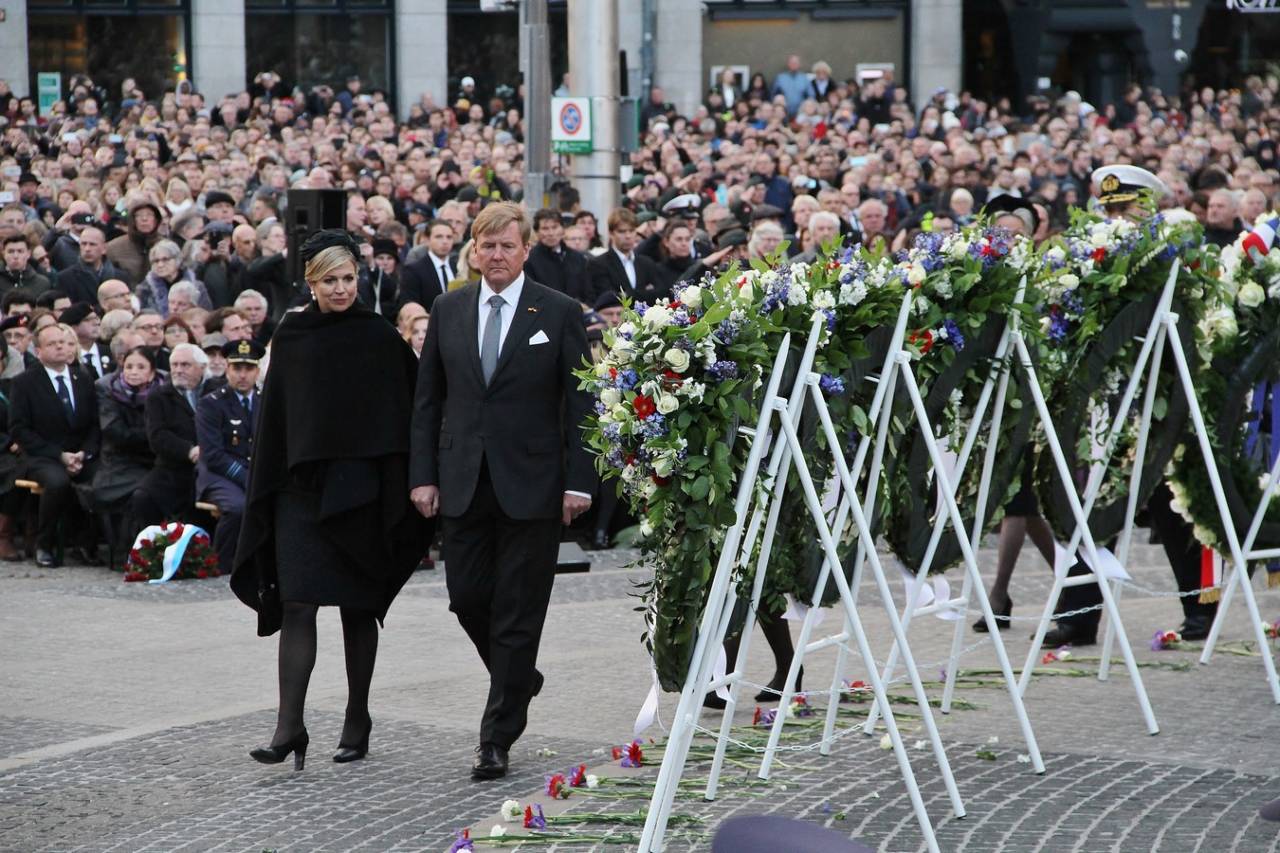The Netherlands remembers its dead and celebrates its liberation


The Netherlands fell silent for two minutes at 8pm on Saturday night, as the Netherlands remembered the Dutch who died in World War II and in subsequent conflicts.
King Willem-Alexander and queen Maxima laid a wreathe at the war memorial in Amsterdam, along with survivors of WWII, members of the armed forces and family members of those who died.
Some 4.4 million people are thought to have watched the Amsterdam event live on television, with tens of thousands of others taking part in solemn ceremonies all over the country.
Then on Sunday, the Netherlands celebrates its liberation with festivals and events nationwide.
.
in mei 1945 !foto’s van de #Bevrijding van de @Gem_Amersfoort / #Leusden door de Canadezen / Amerikanen
(opnames Foto Fortgens, vriend van mijn vader ) #Bevrijdingsdag in #Amersfoort !
. pic.twitter.com/qUC9deEzj5— Hans van Wegen – (@BPA_prive) May 5, 2019
The celebrations started in Wageningen around midnight where the Liberation flame was lit and torches then taken by 1,300 runners in relay to other fires all over the country. Germany signed the capitulation documents in Wageningen on May 5, 1945. The south of the country had been liberated months earlier.
Bevrijdingsvuur ontstoken, Nederland viert de vrijheid https://t.co/DC5GvsI3Vw#Bevrijdingsdag #Bevrijdingsvuur #Wageningen #Bevrijdingsfestival #geefvrijheiddoor #5Mei
— Michael (@michael15071997) May 5, 2019
This year, Dutch scientist and writer Rosanne Hertzberger will give the traditional May 5 reading which ‘provides a moment of reflection on the vulnerability of freedom within the Netherlands but also elsewhere,’ the organising committee says.
In total 14 formal Liberation Day festivals are being staged: in Zwolle, Leeuwarden, Assen, Almere, Utrecht, Rotterdam, The Hague, Amsterdam, Haarlem, Wageningen, The Hague, Roermond and Vlissingen. More information here
This year’s festival ambassadors are Kraantje Pappie, singer Maan and dj Sam Feldt, who will visit all 14 events by helicopter.
The celebrations end with the traditional May 5 concert on the Amstel river in Amsterdam, which is broadcast live on television and will be attended by king Willem-Alexander and queen Máxima.
Vandaag vieren we de #vrijheid. In 1945 werd dit gevierd met versierde straten, dansende mensen op straat en… chocola! 🍫
Bekijk hier meer over de #bevrijding van Nederland: https://t.co/rbbdlqclkz pic.twitter.com/OWvRDWmbdC— Schooltv (@Schooltv) May 5, 2019
Thank you for donating to DutchNews.nl.
We could not provide the Dutch News service, and keep it free of charge, without the generous support of our readers. Your donations allow us to report on issues you tell us matter, and provide you with a summary of the most important Dutch news each day.
Make a donation